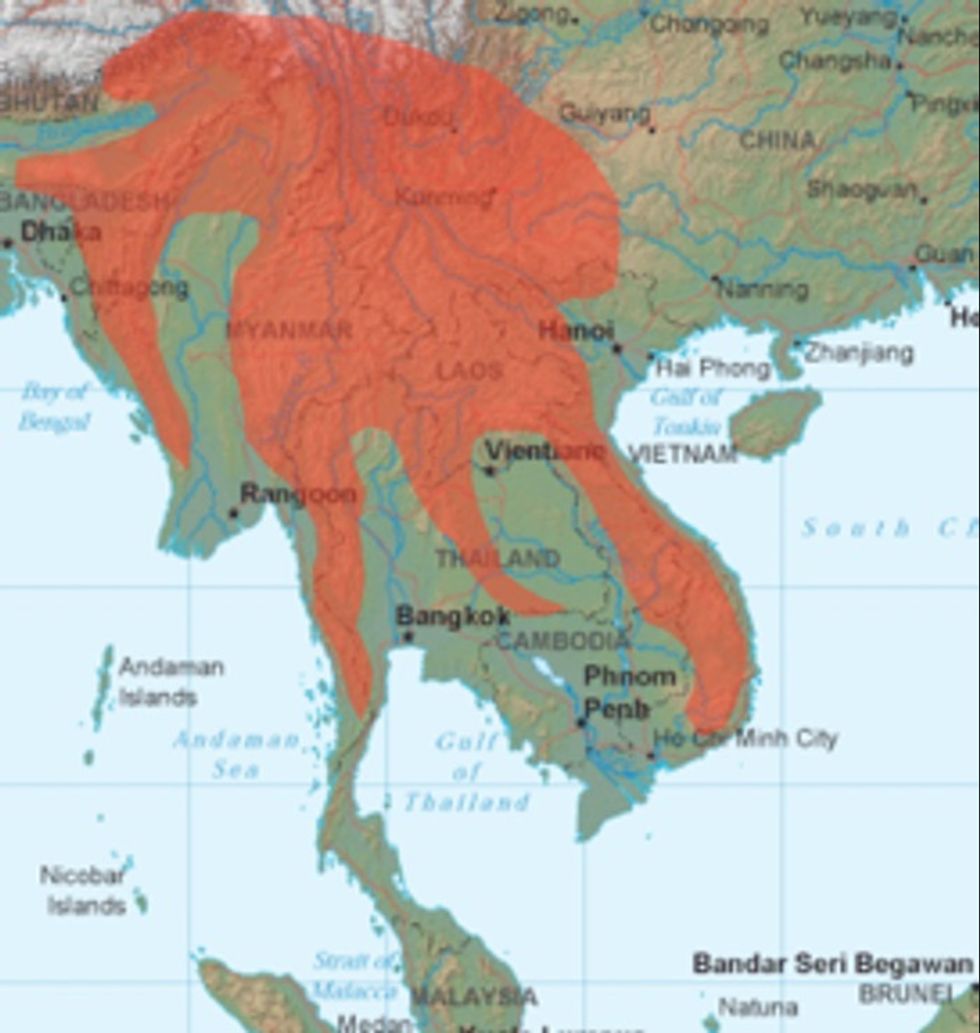© 2024 Blaze Media LLC. All rights reserved.
If the free people of Zomia are slowly giving up some of their freedoms, what then does that say for America's future?
By Mike De Luca, for TheBlaze
Anarchy isn’t necessarily the absence of government, but rather the absence of social restraint when there is no ruling body.
So what than, can we call a lack of chaos in the absence of rule?
Zomia.
Occupying the rugged mountains where Indochina, Thailand, Laos, Burma and Tibet intersect there lays a place called Zomia. It occupies approximately 2.5 million square miles, but has no borders to use for actual delineation. It is home to 100 million people, but there is no consensus since there isn’t anyone to count them. It is socially, ethnically and religiously diverse, and yet it seems to work.
Technically, it isn’t a country at all.
By no means is it a haven for the opportunists or the refugees of lowland Asian colonialization, because lawless is lawless in both positive and negative ways. The people who have existed here for thousands of years have had a hard life, utilizing labor-intensive primitive farming and herding while living in hostile terrain. Land that is so difficult it has proven to be an excellent border.
As well, according to one of the foremost books on the subject of Zomia “The Art of Not Being Governed” by James C. Scott, smuggling, opium growing, and the navigating of dangerous trade routes have formed a large part of what passes for an economy.
Life here is inherently unstable, but such is the cost of absolute freedom.
The people here are fiercely independent, with tribes having been in active conflict with the various states vying for power over them through the years. But they are fighting a losing battle.
Since World War II, Zomia has had difficulty in maintaining its freedom. Where some sacrifice total independence in exchange for a bit of modern convenience others are holding out against the reach of a state. Technological improvements in farming, transportation, infrastructure, communications and the internet have facilitated the “taming” of many of these stalwart people by central governments in Southeast Asia through taxation and the offering of public services, among other avenues.
In other words, they cannot hide any longer, and they’ve been given a taste of the modern nanny-state.
With each generation the changes are more welcome; and as John Wesley said “What one generation tolerates, the next generation will embrace.”
There’s a lesson here for those who choose to learn it. What about Zomia can we apply to the United States, if not the western world?
The stories of Zomia and America are similar: Refugees (religious or otherwise) flee to a vast and unfriendly land to make their fortunes and their own way. A foreign government, with which many of them share history and genetics, demands fealty, and they do not want to give it. They try to maintain their independence, but as the generations pass and their world shrinks, they sacrifice their freedoms for “help” and “convenience.”
America and Zomia are at a turning point, the dawning of a new age. Just as the Zomians are rapidly coming to a point where large groups of people are deciding whether they will sacrifice their autonomy, Americans are marching towards the same conundrum. In America there have been, and continue to be made, a series of decisions that have led the citizenry to slowly surrender its freedoms, just as many Zomians are doing.
History has shown that every generation takes itself further from the government and ideology of its predecessors. While the Zomians are generationally moving toward modernization, America is moving toward some form of despotic collectivism. It bears mention that this is occurring while many formerly collectivist or burgeoning nations are using our constitution as a template for establishing their own republics.
What the future holds for Zomia is difficult to tell. What’s undeniable is that America is steadfastly moving towards the antithesis of its very foundation. We see the Zomian people marching inexorably towards rule, and in that reflection we can see America's move into absolute rule. But the reflection must not be a crystal ball. Americans must remember that their nation was founded for them to be able to forge their own destinies.
Mike De Luca works in Medical Dosimetry and freelances as a writer. You may contact him at delucam@yahoo.com
–
TheBlaze contributor channel supports an open discourse on a range of views. The opinions expressed in this channel are solely those of each individual author.
Want to leave a tip?
We answer to you. Help keep our content free of advertisers and big tech censorship by leaving a tip today.
Want to join the conversation?
Already a subscriber?
more stories
Sign up for the Blaze newsletter
By signing up, you agree to our Privacy Policy and Terms of Use, and agree to receive content that may sometimes include advertisements. You may opt out at any time.
© 2024 Blaze Media LLC. All rights reserved.
Get the stories that matter most delivered directly to your inbox.
By signing up, you agree to our Privacy Policy and Terms of Use, and agree to receive content that may sometimes include advertisements. You may opt out at any time.



